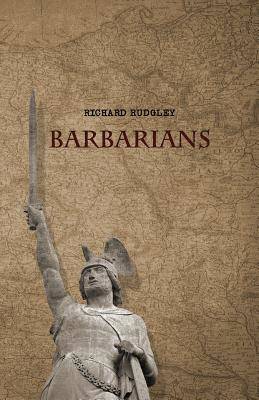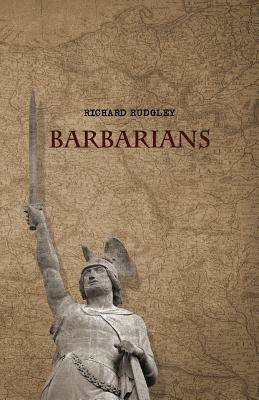
- Retrait gratuit dans votre magasin Club
- 7.000.000 titres dans notre catalogue
- Payer en toute sécurité
- Toujours un magasin près de chez vous
- Retrait gratuit dans votre magasin Club
- 7.000.0000 titres dans notre catalogue
- Payer en toute sécurité
- Toujours un magasin près de chez vous
19,95 €
+ 39 points
Format
Description
Rome is falling... It is the time of the barbarians. Conventional history portrays the Dark Ages as an ominous period precipitated by the fall of Rome. We are led to believe that the torch of civilisation flickered only in isolated monasteries that dotted the landscape of a Europe otherwise engulfed in darkness. Barbarians: Secrets of the Dark Ages challenges the accepted view of events passed down to us by the Roman accounts of the barbarian world. The Romans, like every imperial power, had a vested interest in propagating their own view of history but if we read between the lines and delve deep into the archaeological record multiple cultural vistas emerge from the shadows of Rome. Our own ancestors were much more than barbarians - their languages, arts and other cultural treasures have shaped and moulded the destiny of Europe more than the Roman Empire that once held them in its vice-like grip. It is the ethnic mosaic of the Huns, Goths, Vandals, Anglo-Saxons, Vikings and others that the author reveals in this retelling of an often misunderstood time in our collective history. 'It is rare that a historical documentary can genuinely shake your view of the world, but by pointing out Western stifling reverence for Roman culture, Rudgley succeeds' - Sunday Times 'The barbarian societies of the Dark Ages were to provide the fertile soil from which the nation states of today were eventually to grow. And this very soil continues to yield up artefacts that testify to the great cultural achievements of the barbarians.' - p. 263 Richard Rudgley is a critically acclaimed author and TV presenter whose books have been translated into twelve languages. He was born in Hampshire, England in 1961. After receiving a first class degree in Social Anthropology and Religious Studies at the University of London, he continued his studies in ethnology, museum ethnography and prehistory at the University of Oxford. In 1991 he became the first winner of the British Museum Prometheus Award which resulted in the publication of his first book, Essential Substances: A Cultural History of Intoxicants. His equally well-received book, The Encyclopaedia of Psychoactive Substances, was published in 1998. In the same year his book Lost Civilisations of the Stone Age presented overwhelming evidence that the historical civilisations owed a much greater cultural debt to their prehistoric ancestors than is generally accepted. He has written and presented several documentaries that have aired on Channel 4 in the United Kingdom and on various channels internationally, including Secrets of the Stone Age, Barbarians and Pagans. He also wrote books to accompany the former two. In 2006, he published Pagan Resurrection: A Force for Evil or the Future of Western Spirituality? which describes the various ways the archetypes of Northern European mythology have re-emerged in the Western psyche. He is a Fellow of the Royal Geographical Society and a member of the Asatru Folk Assembly. Arktos has also republished his books Essential Substances, which is about the history of intoxicants in the world's civilizations; and Wildest Dreams: An Anthology of Drug-Related Literature, which collects writings both ancient and modern describing the drug experience.
Spécifications
Parties prenantes
- Auteur(s) :
- Editeur:
Contenu
- Nombre de pages :
- 286
- Langue:
- Anglais
Caractéristiques
- EAN:
- 9781910524060
- Date de parution :
- 27-10-14
- Format:
- Livre broché
- Format numérique:
- Trade paperback (VS)
- Dimensions :
- 140 mm x 216 mm
- Poids :
- 367 g

Les avis
Nous publions uniquement les avis qui respectent les conditions requises. Consultez nos conditions pour les avis.






